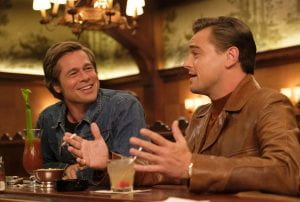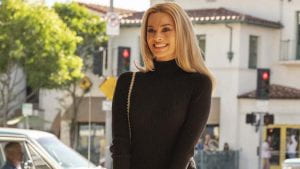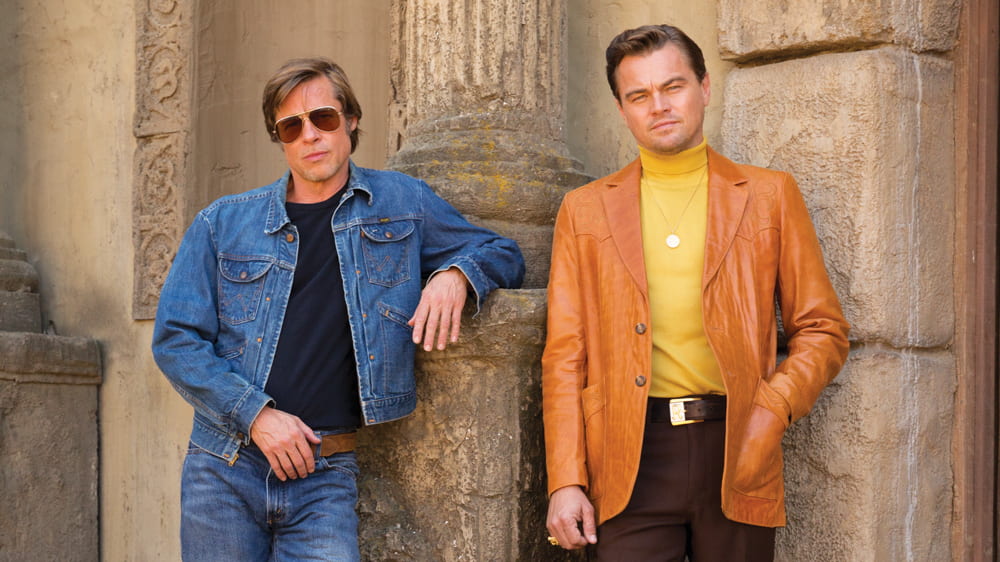Quentin Tarantino is a filmmaker, yes, but he is first and foremost a film fanatic – each release of his paying respect to the stories that made him fall in love with the medium. Whether that be through overt genre homages or obscure references stealthily positioned into his dialogue, he wears his influences on his sleeve with pride. In Once Upon a Time In Hollywood, he cranks that dial up to 11, creating a film that not only operates as a swan song to an era gone by but as a vehicle for him to vent his own frustrations while living vicariously through the lead characters. For that, it’s easily one of his most personal films to date.

This notion is no more apparent than in a scene shared between Rick Dalton (Leonardo DiCaprio) and the young Trudi (Julia Butters). The two, seated side by side in between shooting their scenes on the TV show “Lancer,” strike up a conversation about their reading material. Trudi, giving a synopsis of her Walt Disney biography, declares him a genius – the type of guy that’s “one-in-a-million.” Dalton, on the other hand, recounts the story of a middle-aged cowboy that’s lost his touch – one that parallels his own state at that point in the film – and drives himself to tears. It’s an “in your face” analogy of Old Hollywood vs. New Hollywood, but it’s effective at telling it as it is: Hollywood, for better or worse, isn’t the same as it once was, and the younger generations don’t gravitate towards the same types of stories. And the inclusion of Walt Disney wasn’t unintentional either – Tarantino has explicitly expressed disdain against the company, and it’s ironically fitting that Once Upon a Time in Hollywood debuted at the box office the same weekend as the live-action reboot of The Lion King, where it earned the #2 spot against the Disney juggernaut. Tarantino is clearly frustrated by classic film’s waning relevance, but that’s not to say the film carries a resentful tone. What Once Upon a Time in Hollywood is, is unabashed and bittersweet – it longs for the days of old while being fearless in its execution.

And longing this film is, with extended scenes of characters driving, walking, and simply being, set in the lush but lived-in 1960s Hollywood. On a cursory level, the intent behind such a decision on Tarantino’s part may be to simply show off the beautiful production design (which is genuinely astounding), but it’s also maybe an attempt to grasp onto the last remains of a dying breed of film, and to be in the moment with all its authenticity. The Sharon Tate theater scene is a perfect reflection of this, and also a heartbreaking reminder of fame’s fleeting nature. It’s off-putting to even think a film this mature, grounded, and free-flowing came from Tarantino, but at the same time, it’s a story so inherently intertwined within his own journey as a filmmaker that I can’t imagine anyone else making this. That in itself is a testament to his raw talent and legacy behind the camera.
I could say that while satisfying, the ending felt comparatively abrupt versus the consistently steady pace held by the rest of the film, and that I wish Sharon Tate, though treated with much respect under the circumstances, was more developed. At the end of the day, though, I would rather watch an audacious film over a safer film – flaws and all. Let’s treasure those films while we can.
3.75/5 STARS
